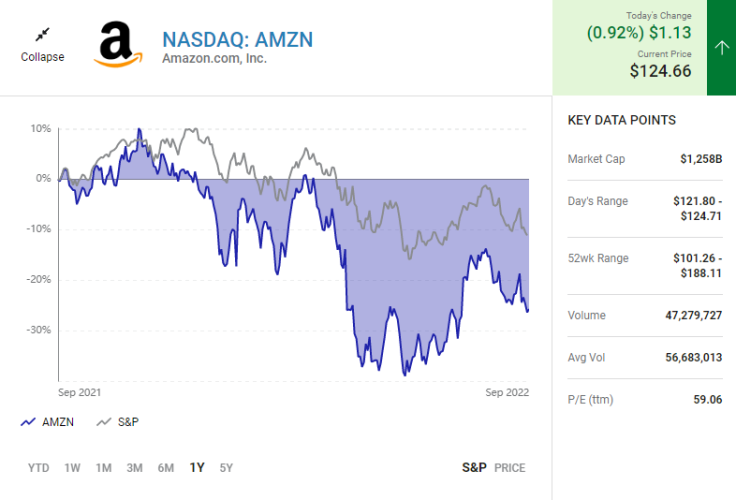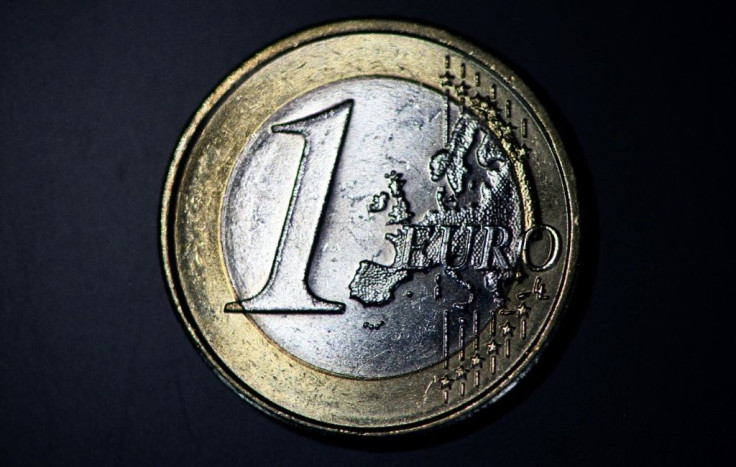Move Over, Cryptocurrencies: A Digital Euro Could Be Coming With Help From Amazon
KEY POINTS
- The e-commerce giant will develop a user-interface prototype for a potential digital euro
- Amazon's involvement in such a groundbreaking project adds yet another possible upside for its business
On Friday, the European Central Bank (ECB) announced that it had selected e-commerce giant Amazon.com (AMZN 0.92%) and four other entities to develop user interface prototypes for a possible digital version of the euro.
A digital version of the euro -- or of any other major central bank digital currency (CBDC), such as the U.S. dollar -- would likely have investing implications throughout the financial sector. This includes implications for cryptocurrencies, digital currencies that fall outside the domain of central banks or any centralized authorities.
The focus of this article is on what this development could mean for Amazon.
The Digital Euro Project's prototyping phase
Along with Amazon, the ECB selected CaixaBank, Worldline, the European Payments Initiative (EPI), and Nexi to help it develop potential user interfaces for a digital euro. It selected them from a pool of 54 applicants because it believes they can best address the "specific capabilities" required for an assigned use case for a digital euro. They will not be financially compensated for their prototyping work.
The non-Amazon names are probably new to many U.S. investors. They're all based in Europe, and none are listed on a major U.S. stock exchange. Indeed, it seems a telling indication of Amazon's global e-commerce dominance that it's the only one of the five chosen entities based outside the eurozone.
According to a press release by the ECB, the aim of the prototyping stage of the Digital Euro Project is "to test how well the technology behind a digital euro integrates with prototypes developed by companies. Simulated transactions will be initiated using the front-end prototypes developed by the five companies and processed through the Eurosystem's interface and back-end infrastructure." (The Eurosystem is comprised of the ECB and the national central banks of the eurozone.)
Amazon's focus, of course, will be on e-commerce payments. Spain-based CaixaBank, France's Worldline, and Italy's Nexi will concentrate on peer-to-peer online payments, peer-to-peer offline payments, and point-of-sale (POS) payments initiated by the payee, respectively. EPI, comprised primarily of numerous banks and credit institutions across Europe, will focus on POS payments initiated by the payer.
The Digital Euro Project's timeline
The ECB expects the user-interface prototyping phase of the Digital Euro Project, which launched in July 2021, to be completed by the first quarter of 2023. It plans to publish its findings in that quarter.
After the two-year investigation phase of the project ends in October 2023, the ECB will decide whether to start developing a digital version of the euro. The implementation phase, if applicable, is expected to last about three years. So a digital euro could arrive in the fall of 2026 or thereabouts.

How could Amazon benefit from its involvement in the Digital Euro Project?
It's too early to do more than just broadly speculate as to how Amazon could benefit from its involvement in the ECB's exploration of the development of a digital euro. That said, being involved in the early stages of a groundbreaking project definitely has potential upside for the company's business.
Should a digital euro come to fruition, Amazon might have an edge on its competitors in that its internal systems would be ready to handle digital euro transactions. And the company might be able to leverage what it learns from its digital euro work to help improve its current products and services or expand into new arenas.
This article originally appeared in The Motley Fool.
John Mackey, CEO of Whole Foods Market, an Amazon subsidiary, is a member of The Motley Fool's board of directors. Beth McKenna has no position in any of the stocks mentioned. The Motley Fool has positions in and recommends Amazon. The Motley Fool has a disclosure policy.






















